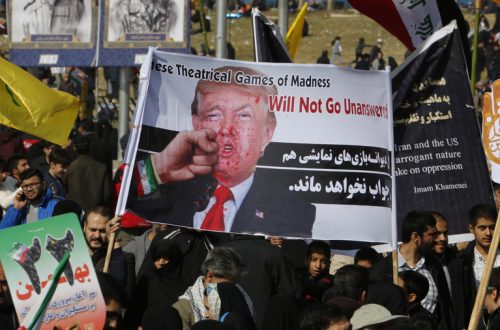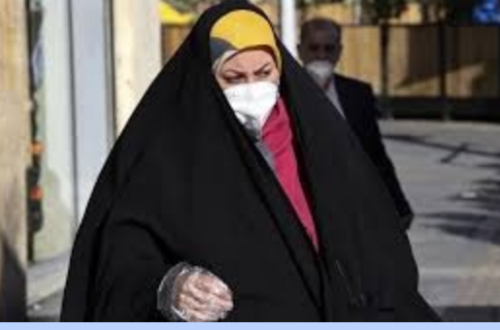The Islamic Republic is hardly on the brink of collapse, unfortunately, but The Washington Post reports a couple of encouraging developments.
With new international financial sanctions already taking a toll on Iran’s currency, the Obama administration is stepping up pressure on the government of President Mahmoud Ahmadinejad with a fresh set of penalties against eight senior officials for alleged human rights abuses.
Sanctions recently implemented by the United Arab Emirates precipitated a sharp drop this week in the value of Iran’s currency, the rial, disrupting the country’s markets and triggering skirmishes between money changers and security forces. The sanctions flowed from an international effort to punish Iran for expanding its uranium enrichment program in defiance of U.N. resolutions.
Under a new executive order signed by President Obama and announced Wednesday in Washington, a separate, more targeted set of sanctions is intended to punish top Iranian officials deemed responsible for the arbitrary detention, killing, torture, beating and rape of Iranian citizens since the country’s disputed 2009 presidential election.
Among the blacklisted officials are the commander of Iran’s Revolutionary Guard Corps, the interior and intelligence ministers, and top police and military commanders. They are subject to individual financial sanctions and ineligible to obtain U.S. visas in accordance with a U.S. law passed in June.
…..
The rial has lost about 15 percent of its value against the U.S. dollar since Sunday and has also dropped against the euro.Money changers clashed with security forces in front of the Central Bank of Iran’s headquarters Tuesday after learning that they would not be able to buy dollars at a lower rate as promised. No foreign currency was being sold.
But Central Bank Governor Mahmoud Bahmani insisted that “there is no problem” and that foreign currency is freely available.
…..
The new U.S. executive order, meanwhile, marks the first time that the Obama administration has levied sanctions against Iran for human rights abuses – in this case offenses allegedly committed against dissidents protesting Ahmadinejad’s disputed June 2009 reelection.The targeted officials include Mohammad Ali Jafari, commander of the Islamic Revolutionary Guard Corps; Sadegh Mahsouli, minister of welfare and social security; Gholam Hossein Mohseni-Ejei, Iran’s chief prosecutor; Saeed Mortazavi, the former chief prosecutor in Tehran; Heydar Moslehi, minister of intelligence; Mostafa Mohammad Najjar, interior minister; Ahmad-Reza Radan, deputy chief of the National Police; and Hossein Taeb, deputy Revolutionary Guard commander for intelligence.
…..
Tom Malinowski, Washington director for Human Rights Watch, said the executive order is significant because “it sends a message to the Iranian public that U.S. sanctions are tied to something they care about, not just to something that the Americans care about.”He said it also means that resolving the nuclear issue “will not by itself be enough for full normalization, since sanctions against the most abusive elements of the Iranian government will remain.”
It may be mostly symbolic, but it’s a start.
And this is in addition to the Stuxnet computer “worm”– which may or may not be causing major delays in Iran’s nuclear plans and which may or may not contain an allusion to to Biblical Book of Esther.
Keep ’em guessing.
Update: And still more. AFP reports:
Under threat of US sanctions, European oil firms Total, Shell, Statoil and Eni have pledged to stop investing in Iran in what amounts to a “significant setback” to Tehran, a US official said Thursday.
The pledges fall in line with new energy and financial measures against Iran that US President Barack Obama signed into law in July in the wake of UN Security Council sanctions imposed in June to curb Iran’s nuclear ambitions.
“We have received commitments from four international energy firms to terminate their investments and avoid any new activity in Iran’s energy sector,” Deputy Secretary of State James Steinberg told reporters.


